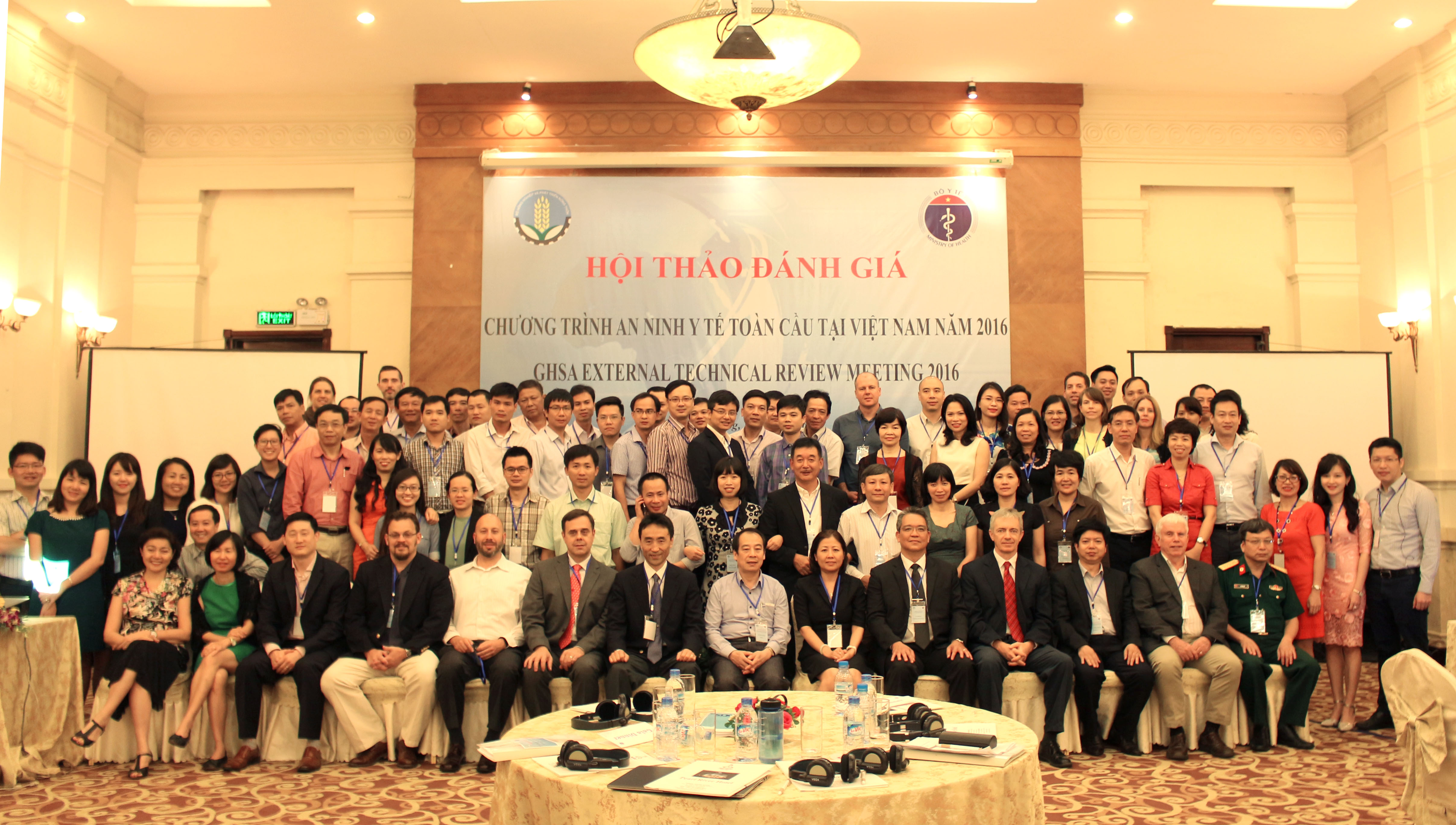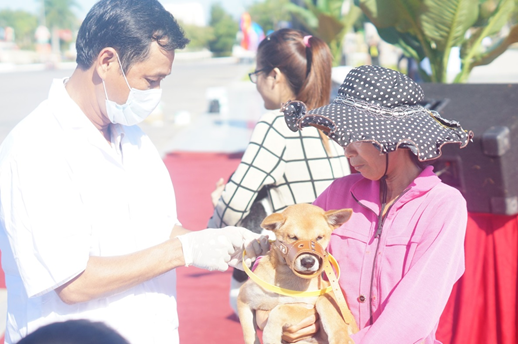News & Announcements
Following the occasion of One Health Day (3 November annually), a number of noteworthy events took place globally in November and December 2016, indicating a rising common concern at the regional and global levels in this field.
Being implemented from December 2013 till June 2016, one of the important results of the project “Strengthening Capacity for implementation of One Health in Viet Nam” funded by USAID through UNDP has been support and small grants provided for key research and other priority studies as identified by the Technical Advisory Committee (TAC) in One Health field. Within the scope of the project, seven studies were conducted by national and international experts, who were mobilized by the Viet Nam One Health Partnership for Zoonoses (OHP) Secretariat, which is the focal point for implementing SCOH. The finalized study reports were sent to technical agencies of the Ministry of Agriculture and Rural Development (MARD) and the Ministry of Health (MOH) for appraisal before official dissemination.
In July 2016, the USAID-funded PREDICT worked with Viet Nam’s Department of Animal Health to release the final results from PREDICT-1 surveillance of wildlife farms in Viet Nam. The information represents the first set of PREDICT data on viruses circulating in farmed wildlife in Viet Nam. The findings support concerns that wildlife farms are associated with factors that increase the risk of pandemic emergence. Viruses from viral families of public health concern (Corona viruses and Rhabdoviruses) were detected in wildlife on 62% (18/29) of the farms screened. More than one virus was detected on some farms and viruses were detected in multiple species. The viruses detected included both known viruses and novel viruses, with evidence of cross species transmission. These viruses will be further characterized under PREDICT-2.
Rabies is a dangerous acute infectious viral disease which is spread to people from infected animals, in particular dogs. According to statistics from WHO, 50,000 people die of rabies and more than 10 million people have rabies vaccination every year. In Viet Nam, rabies disease has been circulating in the country for many years.
As one of the two lead countries for the Zoonotic Diseases Action Package (ZDAP) and a contributing country for the Emergency Operations Centre (EOC) Action Package of the Global Health Security Agenda (GHSA), Viet Nam has demonstrated its efforts and engagement with this important cooperation program to international community through active participation in recent regional highlighted activities in the previous quarter.
In order to mobilize and effectively utilise support from the international community and to affirm Viet Nam's commitment to the prevention and control of infectious diseases in humans and animals, the Government of Viet Nam (GoVN) through the Viet Nam One Health Partnership for Zoonoses (OHP) Secretariat has actively facilitated the development of the Viet Nam One Health Strategic Plan, 2016-2020.
On 26-27 April 2016, the Global Health Security Agenda (GHSA) External Technical Review meeting for 2016 was successfully organized in Hai Phong, Viet Nam. The objective of the meeting was to enhance coordination and information sharing between Government of Viet Nam (GoVN) agencies and international organizations in implementing Global Health Security activities.
Rabies, a fatal viral disease of animals and humans, continues to pose a serious threat to human health and livelihoods in Viet Nam.
In May and June 2016, Dr Cao Duc Phat, Minister of Agriculture and Rural Development, has awarded medals "For the Cause of Agriculture and Rural Development" to Mdm. Victoria Kwakwa, the World Bank’s Country Director for Viet Nam and Mr. Joakim Parker, USAID Viet Nam’s Mission Director.
Featured News



.jpg)






